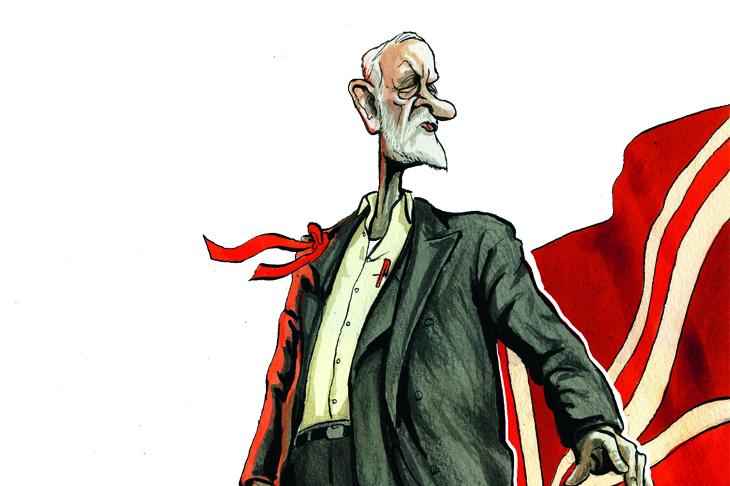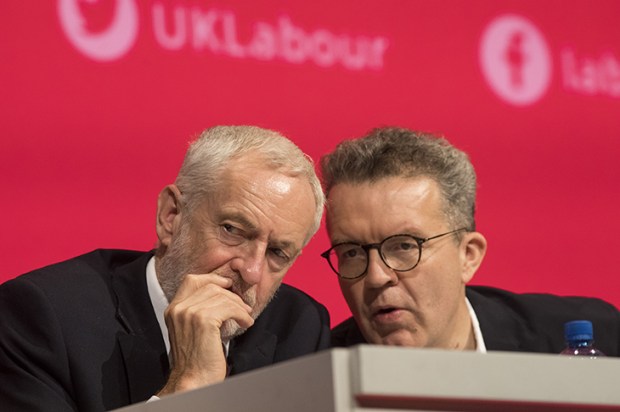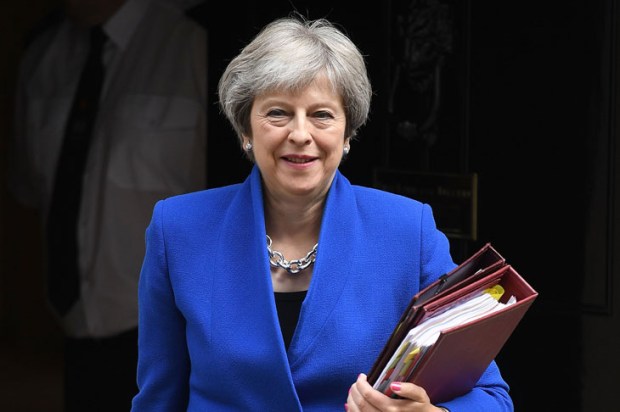It’s hard to think of a time when an opposition leader has had such a promising start to the new year. Jeremy Corbyn finds himself up against a prime minister who barely survived a confidence motion, with more than a third of the Conservative parliamentary party voting against her. The Tories have no majority of their own and have fallen out with their partner, the DUP. That same government is facing a make-or-break Brexit vote in two weeks’ time. It’s quite possible — some cabinet members believe probable — that it may soon collapse with a new general election called. All Labour needs is to be ready.
In parliament, Corbyn’s closest allies are trying to do just that. A plan for government is being put together, identifying which piece of legislation would be needed to make various manifesto pledges happen quickly should Labour take power. The aim is to move fast, as Tony Blair did in 1997. In such turbulent times, even a Labour government might not last for long — so the Corbynistas intend not to waste any time.
Before they get there, however, there is work to do. The priority is to get through Brexit without fatally wounding the party’s electoral chances in the process. Most Labour MPs are die-hard Remainers, and a recent poll showed that seven in ten party members favour a second referendum. Until now, Corbyn has managed to keep a coalition of voters broadly together by being incredibly vague — and, at times, contradictory — on Brexit. His official policy is to get to No. 10, then renegotiate the Brexit deal so that it aligns better with Labour party values on issues like workers’ rights. To do this, Labour plans to defeat the government in a confidence motion after the meaningful vote this month.
If Theresa May does lose a confidence motion, the Commons would have 14 days to approve an alternative government. Should it fail, the country goes to the polls. One scenario being talked up is that May wins her vote (potentially after some Brexit concessions), thanks to a number of Labour abstentions and support from opposition MPs representing Leave seats. But this enrages the DUP, which then votes with Labour to bring May down. Within certain Labour circles this is seen as the tidier option. ‘You avoid looking complicit in no deal. You can, in theory, then fight an election on domestic policy,’ explains a party insider. Ideally with the same leader: in May they trust. ‘Past performance suggests that if the Tories begin an election with her as their leader they will do worse than expected.’
The second scenario would see the government’s Brexit deal defeated (which, as things stand, is more likely). This would put Britain on course for a no-deal Brexit. At this point, the most enthusiastic Tory Remainers may conclude that they cannot vote this down unless they vote their government down. That might have once sounded unthinkable but in the topsy-turvy world of Brexit, there’s reason to think some might. Conservative MP Nick Boles has already said he would ‘vote in any way necessary to stop it from happening’.
But would there be time to stop it? Unless parliament can agree on a different course of action, the UK will leave the EU without a deal in 12 weeks’ time. This has been the default position since Article 50 was approved by MPs. If it cannot be extended in time, under this scenario a snap poll could occur amid a Brexit on WTO terms — something many Labour supporters would find hard to swallow and might blame the leadership for. It would also leave the matter of Brexit open, which, as a general rule, tends to make life more difficult for Corbyn.
Even without a general election, Corbyn will come under increasing pressure to back a second referendum. Party members tried to make this party policy at Labour conference. John McDonnell and Diane Abbott, both Corbyn allies who help to make the big Brexit decisions, are seen as open to the idea of a People’s Vote if an election doesn’t happen. But a number of Corbyn’s advisers believe this would badly hurt Labour’s electoral chances by alienating towns that voted heavily to leave, such as Mansfield, where the Tories had a surprise victory in the snap election. Winning support in Leave towns is seen as crucial for winning a Labour majority.
Internal Labour polling also suggests that there is no huge appetite for a second referendum among the population at large. Instead, the overall feeling is one of apathy and ennui. Focus groups in the Midlands — an area with numerous swing seats and several Labour marginals with two-figure majorities — found even Remain voters sceptical of the idea of a People’s Vote. Were Labour to endorse a second vote, there’s concern that Labour Leave voters might accuse the party of Brexit betrayal and defect to Ukip, the Conservatives or not vote at all. This is viewed as a greater risk to Corbyn than annoying Remain voters, who are seen as less likely to vote for anyone else. Just look how the beleaguered Liberal Democrats fared in 2017 running on a pro-EU slate.
Overall, Corbyn’s allies are confident that, Brexit aside, things are going their way. And that when the Brexit tide eventually does roll out, the Tories will be found to be swimming naked. ‘They’re going to have to find out what they’re actually for– in a way that they haven’t since the referendum result,’ says one Labour staffer. Theresa May’s paralysis on Brexit means that the Conservative party’s domestic agenda is threadbare. This is what Corbyn’s hope rests on: that record numbers now think that the country is moving in the wrong direction. And that there has been a reversal in public opinion in the past five years in people who thought tackling the deficit was more important than investment in services and communities.
Election or not, this year should present an open goal for Labour. Internal critics, however, point to the fact that Corbyn is fairly well practised in missing open goals. Given all of last year’s Conservative problems, they say the Labour leader should be surging ahead in the polls rather than neck-and-neck. The final YouGov poll of last year even gave the Tories a two-point lead. But given that Corbyn went into the last election 20 points behind and came a close second, his allies are still optimistic. So will this be Corbyn’s year? Put it this way: if it’s not, it might never be.
Got something to add? Join the discussion and comment below.
Get 10 issues for just $10
Subscribe to The Spectator Australia today for the next 10 magazine issues, plus full online access, for just $10.
You might disagree with half of it, but you’ll enjoy reading all of it. Try your first month for free, then just $2 a week for the remainder of your first year.















Comments
Don't miss out
Join the conversation with other Spectator Australia readers. Subscribe to leave a comment.
SUBSCRIBEAlready a subscriber? Log in